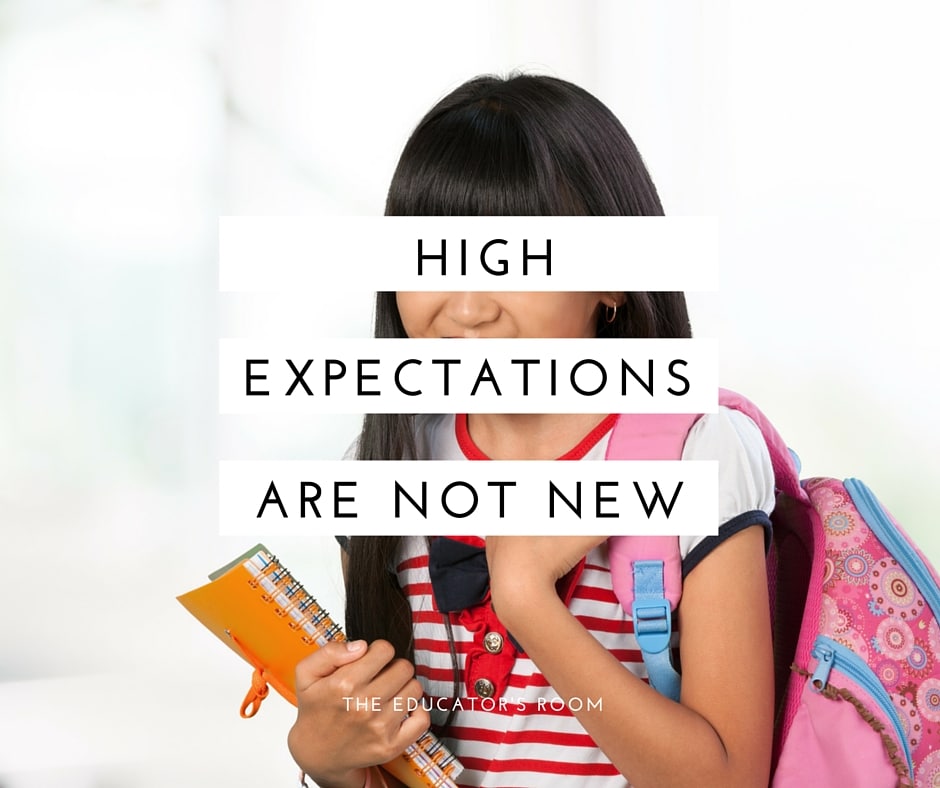High expectations have become “the raised bar”
There is nothing wrong with high expectations, or with “raising the bar”. Good teaching includes working towards students having a depth in skills, and the ability to maintain rigor in their studies. It has always been that way. What has been happening through current corporate-driven reforms, though, is a shift away from natural, collaborative and logically scaffolded experiences and assessments. Instead of sound learner development, we are being hit with”the raised bar” of unreal and out of touch expectations and demands.
Like other reform talking points and catch-phrases (“grit”, “rigor”) the word expectations (or “raising the bar”) is something that reformers use to validate what they do to other people’s children. Apparently, those children haven’t been doing well enough, so we need to “raise the bar”. By pressing reform forward from this starting point, and by using impersonal data and formulas, the conditions those children are living in can be avoided. Reformers, approaching carefully and craftily can make sure that those things are not the issue. Instead the focus is on the cost and effectiveness of public servants trying to help those children. “Raising the bar” on these victims and servants distracts from the misdeeds of the very perpetrators pressing for reforms and raised bars. But what about the front-end factors more closely correlated to academic success on the back end? What should do we do about the need to be “ready to learn” before school even begins?
Raising the bar on readiness
Already, today’s kids are coming to school with less of the things that create “school readiness”. Reading time at home ; unstructured, live, active play with peers; a routine of care and responsibility that comes with economic and social stability…These things are being replaced by screen-time: hand-held devices and computer games, being unsupervised outside of school. In urban communities the out-of-school conditions can mean even more detrimental. Poverty, while not an “excuse”, is a factor correlated with many other negative impacts on a developing child and their family. Many (if not all) of these factors intertwine and have an influence over academic achievement and outcomes. In communities that struggle, you often find schools that struggle as well. Play is being diminished as academic demands from above are pushed down to the grades below-even primary grades. As an elementary teacher I have watched as the ability in the upper grades to attend to task and write neatly has washed away along with the finger painting, clay squeezin and group play that once existed below.
Avoiding obligations, placing blame
Much of what is happening in school reform has happened before. The willingness of government to paint schools as unworthy and then bend the direction of education to match the desires of corporate-backed policy-makers and their designs on our nation, the world, and its economy is well documented.
Why is this happening?
There is a distinct difference between heart, soul, mind, and wallet. Unfortunately, wallet wins up front, as it is winning now. Money is making decisions that make other people more money than they are worth. But the tide is beginning to turn. Keep thinking, keep talking, keep writing, and keep voting. We need reform, for sure, but it is on the policy end first, and THEN in schools. It needs to look different than the top down press. It needs to be lifted from within, by the students, communities and teachers that know what they are doing.






